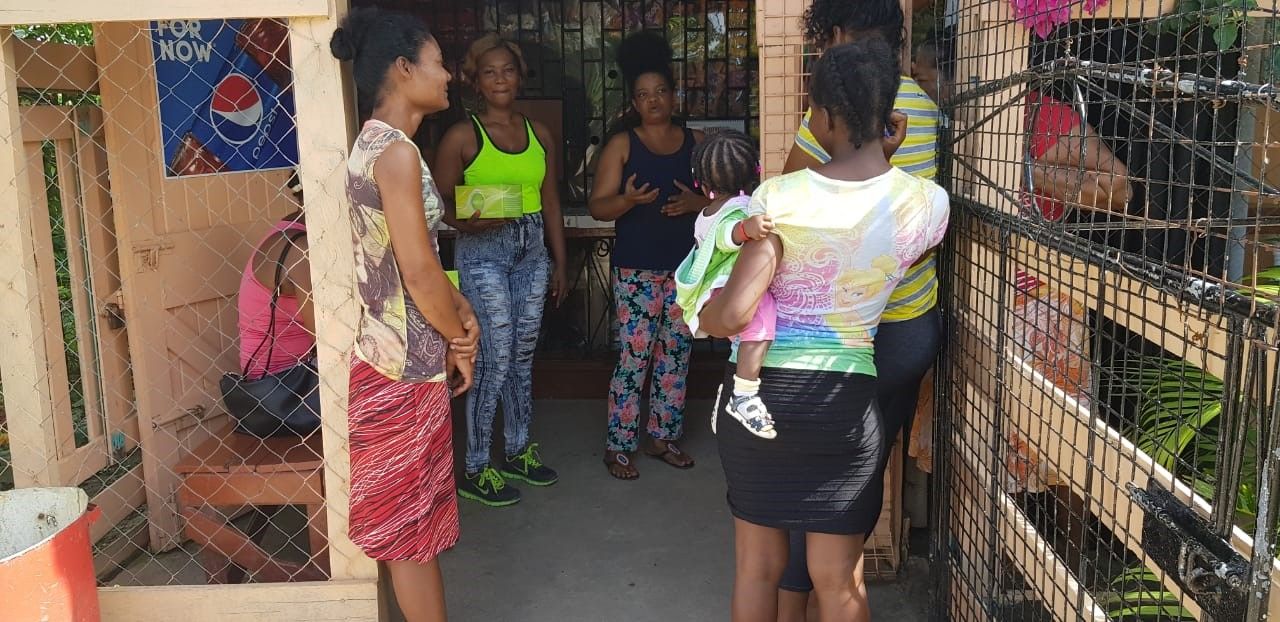Sex Worker Networks Consortium
The Sex Worker Networks Consortium is a global consortium of networks working to advance the health and human rights of sex workers.
| Grantee type
Global consortium |
| Grant:
$1,898,100 |
| Grant period:
2016-2018 |
| Lead organization:
Global Network of Sex Work Projects (NSWP) |
Partner organizations:
|
Created in 2013, the consortium currently includes six networks: the Global Network of Sex Work Projects (NSWP), Asia Pacific Network of Sex Workers (APNSW); African Sex Workers Alliance (ASWA); Caribbean Sex Work Coalition (CSWC); Sex Workers’ Rights Advocacy Network for Central and Eastern Europe and Central Asia (SWAN); and La Plataforma LatinoAmericana de Personas que Ejercen el Trabajo Sexual (PLAPERTS).
- As defined in the UNAIDS Guidance Note on HIV and Sex Work, sex workers are female, male and transgender adults and young people (over 18 years of age) who receive money or goods in exchange for sexual services, either regularly or occasionally. Sex workers face systematic human rights violations in every region of the world, including discrimination, criminalization and punitive laws and policies, a lack of protection by police, and violence, which creates barriers to sex workers’ access to health services.
- Sex workers are disproportionately affected by HIV. Globally, HIV prevalence among female, male, and transgender sex workers is estimated to be 14, 18, and 34 times higher than HIV prevalence of the general population.
- Sex workers have important lived experience of their own health needs and barriers to accessing health services. The capacity of networks of sex workers to organize and advocate is central to efforts to improve human rights environments, improve HIV service accessibility, and improve efficiency and effectiveness of national and international funding for health and human rights.

Discussion with members of the community as part of the Guyana Sex Workers’ Coalition outreach program ©NSWP/CSWC/GSWC
RCF funding 2016-2018
The Sex Worker Networks Consortium received US$ 1.9 million in funding from the Robert Carr Fund during 2016-2018, building on steady RCF investment in sex worker networks since 2013. This funding was allocated to both core and strategic program costs across all major regions of the world to help build the capacity of each consortium partner and to support globally aligned action. In 2019, the Robert Carr Fund allocated over US$ 2.8 million in renewed funding to the Sex Worker Networks Consortium to support consortium members to sustain and expand on their successes.
Geographic coverage
The Sex Worker Networks Consortium is a global consortium, convening and supporting organizations in all regions of the world. Key countries for organizing and capacity-building included Bangladesh, Cambodia, China, Indonesia, Mongolia, Myanmar, Nepal, Vietnam, Angola, Botswana, Eswatini, Gambia, Kenya, Zimbabwe, Antigua, Guyana, Jamaica, Trinidad, Suriname, Brazil, Colombia, Ecuador, Mexico, Peru, Georgia, Kazakhstan, and Kyrgyzstan.
Population coverage
The Sex Worker Networks Consortium focuses on the empowerment, leadership, health and rights of sex workers in every region of the world.
Activities 2016-2018
With RCF funding in 2016-2018 to the Sex Worker Networks Consortium, sex workers strengthened their national, regional and global organizing, advocated for human rights and legal protections, and developed sexual health guidance documents and campaigns. For example:
- All Consortium partners used RCF funding to convene members from multiple countries for shared work, sustain representative and democratic governance, and build management and programmatic capacity.
- Over ten briefing papers and guides were produced and disseminated by the Global Network of Sex Work Projects (NSWP).
- Capacity support included support for advocacy related to the Sex Worker Implementation Tool (SWIT) guidance about HIV and STI programming, guidance about sexual and reproductive health and rights (SRHR), approaches to prevent intimate partner violence and gender-based violence, community organization fundraising, and advocacy for rights-affirming national and international policies for sex worker health and rights.
Results 2016-2018
The results from the work of the Sex Worker Networks Consortium are extensive, with longer-term results likely to be realized for many years to come.
- Network strength and influence: With the help of sustained support over many years for regional organizing, organizational development, and fundraising, networks such as the Global Network of Sex Work Projects (NSWP), Asia Pacific Network of Sex Workers (APNSW), International Committee for the Rights of Sex Workers in Europe (ICRSE), and Sex Workers’ Rights Advocacy Network for Central and Eastern Europe and Central Asia (SWAN) are operating with strong governance, experienced staff, extensive programming and multiple funders, and the other networks – African Sex Workers Alliance (ASWA), Caribbean Sex Work Coalition (CSWC), and La Plataforma LatinoAmericana de Personas que Ejercen el Trabajo Sexual (PLAPERTS) – have sustained and built capacity. This in turn has helped national sex worker coalitions to be aligned in their advocacy for rights and health and to achieve incremental gains even in politically adverse environments.
- Human rights: The work of the Sex Worker Networks Consortium has established important groundwork for advances in human rights and legal protections for sex workers. For example, sex workers have been important advocates in several countries for legislation to reduce violence against women, and in Ecuador a new law was passed aimed at tracking and reducing gender-based violence including violence against sex workers.
- Access to services: The work of the Sex Worker Networks Consortium partners to train advocates and promote the Sex Worker Implementation Tool (SWIT) guidance about HIV and STI programming and guidance about sex worker sexual and reproductive health and rights (SRHR) is already catalyzing important policy and programmatic change in over fifteen countries, including Mongolia, Myanmar, Suriname, Mexico, Peru, Kazakhstan and Kyrgyzstan.